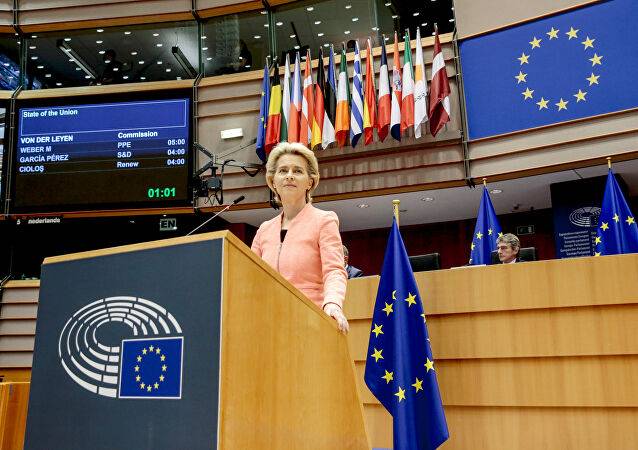Last month, London refused to withdraw the Internal Market Deal, which is changing Brexit rules. The legislation has been widely criticized by European politicians for potentially violating international law.
President of the European Commission Ursula Von Der Leyen has announced that the bloc is starting legal action over the UK Brexit bill.
"This morning, the Commission has decided to send a letter of formal notice to the UK Government. This is the first step in an infringement procedure", she said. "The letter invites the UK Government to send its observations within a month".
The British government, however, reiterated its stance, backing the bill.
"We need to create a legal safety net to protect the integrity of the UK's internal market, ensure ministers can always deliver on their obligations to Northern Ireland and protect the gains from the peace process," a cabinet spokesman said.
Previously, reports suggested that Brussels plans to start legal action against London amid the Brexit stall.
"RTE understands that legal action against the United Kingdom is imminent and that a draft 'letter of formal notice' has been finalised, triggering legal action," RTE Europe Editor Tony Connelly said on Twitter. "The letter of formal notice focuses on a breach of the "good faith" articles (4 & 5) of the Withdrawal Agreement, and it will also state that if the Internal Market Bill becomes law it would be further breach of EU + international law".
Last week, EU leaders warned the UK that changes to the Brexit agreement could scupper trade talks, which are at an impasse despite the approaching 15 October deadline.
The controversy Over the Market Bill
The Internal Market Bill is designed to give Westminster more power over devolved areas, including Northern Ireland in the EU's Customs Union in order to prevent a hard border on the island of Ireland.
The idea that underlines the bill is to ensure that the four parts of Britain (England, Scotland, Northern Ireland, and Wales) will be able to continue to trade with one another, unfettered by trade barriers even after the end of the transition period on 31 December 2020.
The bill suggests that UK ministers will have power to "disapply" regulations agreed to on Northern Ireland in the withdrawal deal with Brussels in January 2020.
The cabinet has admitted the legislation may contradict the Brexit Withdrawal Agreement, which resulted in heated debates within the governing Conservative Party, and harsh criticism from the opposition.
In response, PM Boris Johnson stated that the bill will protect the country from the bloc's "extreme interpretations" of the Northern Ireland protocol, curbing any "accidental or unreasonable measures that serve to break up the UK".
The bill already passed the House of Commons and will be considered by the upper chamber, the House of Lords, and it is expected that it will take most of October and November before a final verdict is sealed.






